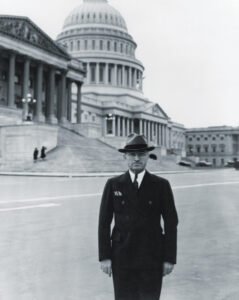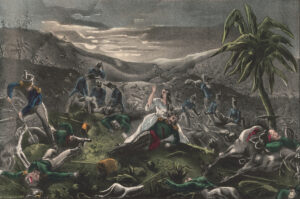

For one brief moment, President Andrew Johnson was more popular with Radical Republicans than Abraham Lincoln.
Given the fact that he was soon to become the first American president to be impeached, it is ironic that Andrew Johnson–briefly, at least–was more popular with Radical Republicans than his slain predecessor, Abraham Lincoln. The bloom did not last, of course, but while it did, Johnson basked in the warm glow of unlikely affection from such unregenerate Southern-haters as Thaddeus Stevens and Charles Sumner–the same congressional leaders who later would lead the impeachment drive against the “accidental president.”
The echoes from John Wilkes Booth’s fatal derringer shot had scarcely died away before Northern Republicans were rushing to embrace their improbable new champion. “Johnson, we have faith in you,” said Ohio Senator Benjamin Wade. That sentiment was seconded by Indiana Congressman George Julian, who confided to his journal: “I believe that the Almighty continued Mr. Lincoln in office as long as he was useful, and then substituted a better man to finish the work.”
The Radicals’ faith in Johnson’s usefulness stemmed in large part from the new president’s longstanding antipathy to the slave-owning aristocrats who had spearheaded the South’s disastrous decision to secede from the Union. “Treason must be made odious, and traitors must be punished and impoverished,” Johnson had declared in 1864. One week after taking office he repeated his stance, telling Michigan Senator Zachariah Chandler, “Treason is a crime, and crime must be punished.”
But Johnson drew a strict distinction between the treasonous actions of individual Southerners and their home states’ rights to govern themselves as they saw fit. Because he refused to accept that the Southern states had legally seceded, Johnson did not believe that they had to be formally reconstructed. Prominent “traitors” might be punished for their crimes, but the states themselves remained inviolate.
That rather legalistic position amazed most Radicals, who believed the Southern states had seceded and should be punished for their acts. Besides, said Stevens, “How the executive can remodel states in the Union is past my comprehension.”
The main point of contention centered on the issue of voting rights for blacks. The Radicals wanted to ensure that “all loyal citizens” would eventually enjoy the right to vote. Johnson, on the other hand, did not believe that blacks were ready for such a drastic step. Black suffrage, he warned, would bring on “a tyranny such as this continent has never yet witnessed.” He called instead for a restoration of legal voting rights to all but the most prominent former Confederates–and even they might have their citizenship restored upon personal application to the president. His recognition of new state governments in Arkansas, Louisiana, Tennessee and Virginia–the states that Lincoln had intended to bring back into the Union–indicated the direction of Johnson’s thought.
At first, there was widespread support of Johnson’s policies. Connecticut Senator James Dixon congratulated the president on his “warm and generous disposition” of the issue. Business leaders also supported the swift restoration of Southern states–in part, said millionaire financier Jay Cooke, because it would enable the nation to turn its attention to economic concerns. “If the entire interests of the colored race were remanded where they belong, to the several states,” said the New York Journal of Commerce, “there would be vastly more productive labor.”
Johnson’s honeymoon would prove short-lived. Widespread reports of Southern violence and intimidation of black freedmen, along with the institution of so-called Black Codes designed to control and limit the rights of blacks to sell their labor freely and at a fair price, angered many Northerners. Coupled with the return to Congress of many former Confederates, the seeming defiance of white Southerners infuriated their former enemies in the North.
Johnson’s well-intentioned, if no doubt politically motivated, attempt to swiftly bring the old states of the Confederacy back into the national fold soon faltered. “A fight between the Radicals and the Executive is inevitable,” Johnson’s fellow Tennessean Harvey Watterson predicted in December 1865. “Let it come.” It came–with a vengeance–and Andrew Johnson’s presidency was slowly but steadily destroyed.
Roy Morris, Jr., Editor, America’s Civil War




